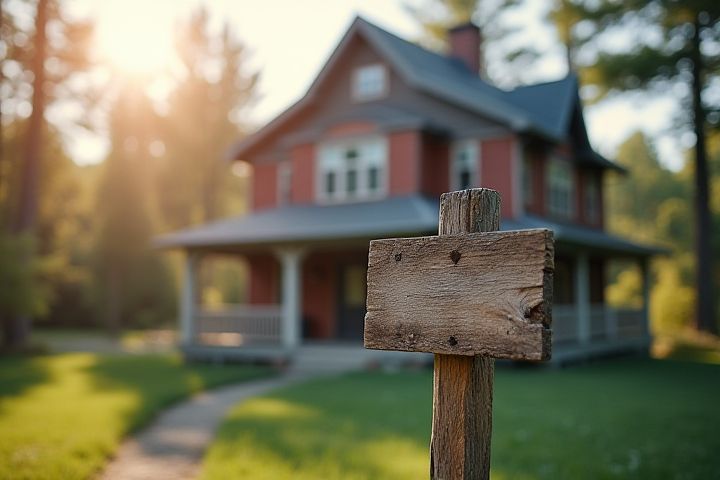
A home inspection before purchase is essential for revealing potential issues, such as structural damage, plumbing defects, and electrical concerns. This assessment typically involves a thorough evaluation by a licensed inspector who examines critical systems and components, ensuring they meet safety standards. Armed with this information, you can negotiate repairs, request a price reduction, or even reconsider the purchase if significant problems arise. Investing in a home inspection can save you from costly surprises down the road. Thus, prioritizing this step can lead to a more informed and confident decision in your home-buying journey.
Should A House Be Inspected Before Purchase
Identify structural issues
A house inspection before purchase is crucial for identifying potential structural issues, which can significantly affect your investment. Inspectors typically evaluate key areas, such as the foundation, roof, walls, and plumbing systems, to detect any signs of damage or wear. For example, a survey might reveal cracks in the foundation measuring more than 1/8 inch, indicating significant structural concerns that could require costly repairs. Addressing these issues early can save you thousands in unforeseen expenses and provide peace of mind about your new home.
Evaluate roof condition
Evaluating the roof condition is critical before purchasing a house, as a compromised roof can lead to significant repair costs. A well-maintained roof has a lifespan of 20 to 30 years, while signs of wear such as missing shingles or leaks may indicate a need for immediate repairs. You should expect to budget $300 to $500 for a professional inspection that provides insights into potential issues. Addressing roof problems early can save homeowners thousands in future maintenance and increase property value.
Assess electrical system
A thorough home inspection should prioritize assessing the electrical system, as it is critical for safety and functionality. Approximately 51,000 house fires in the U.S. annually are linked to electrical failures, making it essential to ensure that wiring, outlets, and panels are installed correctly and up to standard codes. Inspectors will check for outdated components, such as knob-and-tube wiring or insufficient circuit breakers, which can pose serious risks or incur extra costs if not addressed. By having a professional evaluate these aspects, you can safeguard your investment and avoid potential hazards after purchase.
Check plumbing systems
Inspecting the plumbing systems before purchasing a house is crucial for ensuring long-term functionality and preventing costly repairs. Over 20% of home buyers encounter plumbing issues shortly after moving in, which can range from leaky pipes to outdated fixtures. A thorough inspection should include checking for water pressure, signs of corrosion, and the condition of sewer lines, ideally performed by a licensed plumber. By investing in a detailed plumbing inspection, you can safeguard your investment and enhance the reliability of your new home.
Detect pest infestations
A thorough home inspection is crucial for detecting pest infestations before purchasing a property. According to the National Pest Management Association, around 14% of homes in the U.S. have a current infestation of termites, potentially causing substantial structural damage. An inspector can identify signs of pests such as droppings, small holes, or visible damage, which may not be apparent during a casual walkthrough. By investing in a professional inspection, you ensure that your future home is free from hidden pest issues that could lead to costly repairs.
Ensure HVAC functionality
A thorough home inspection is essential before purchasing a property, especially to ensure HVAC functionality, which plays a critical role in your home's comfort and energy efficiency. Approximately 50% of your home's energy use is attributed to heating and cooling, making it vital to verify that the HVAC system operates efficiently and effectively. An HVAC inspection typically includes checking the unit's age, condition, and maintenance history, which can cost between $75 and $200. Investing in this inspection helps you avoid potential repairs that could exceed $5,000, safeguarding your financial interests and enhancing your living experience.
Spot potential safety hazards
A home inspection is crucial before purchasing a house, as it enables you to spot potential safety hazards that could lead to significant problems later. During an inspection, professionals check for structural issues, electrical hazards, plumbing leaks, and other potential dangers that may not be readily visible. According to the National Association of Realtors, approximately 90% of buyers who arranged for inspections reported discovering issues that needed attention. Investing in a thorough home inspection can save you from unforeseen expenses and ensure your safety in your new residence.
Estimate repair costs
A pre-purchase home inspection is critical for identifying potential repair needs and estimating costs associated with those repairs. On average, minor repairs can range from $100 to $1,000, while major issues, such as roof replacements or foundation repairs, can escalate to $10,000 or more. Understanding these potential costs allows you to negotiate a better price or budget appropriately for post-purchase improvements. Investing in a thorough inspection can save you thousands in unexpected expenses down the line, ensuring your home investment is sound.
Understand property value
A pre-purchase home inspection can significantly influence your understanding of the property's true value. In 2023, an estimated 85% of buyers who conducted inspections reported uncovering issues that could lead to substantial repair costs, ranging from $2,000 to $10,000. By identifying hidden problems, such as structural damage or outdated plumbing, you gain a clearer perspective on the home's worth in relation to its asking price. Understanding these factors empowers you to negotiate or reconsider your offer, ultimately ensuring a sound financial investment.
Negotiate better terms
A pre-purchase home inspection provides critical insights into the property's condition, potentially revealing issues that could affect its value. On average, a thorough inspection costs between $300 and $500, a small investment compared to the financial negotiation leverage it provides. Identifying significant concerns, such as structural damage or outdated systems, strengthens your position to negotiate better terms, possibly securing a reduction in price or requiring repairs before closing. By being well-informed about the home's condition, you enhance your negotiating power, ensuring a more favorable purchase decision.
